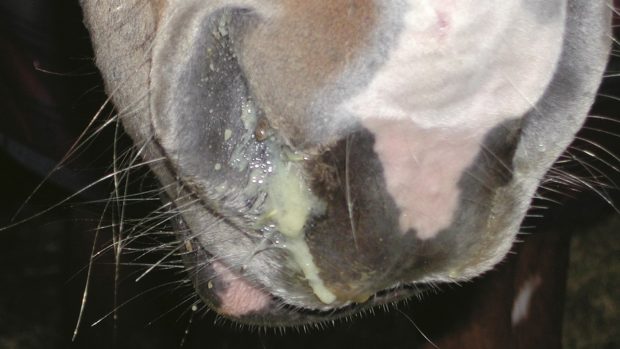Protesters and bad weather thwarted plans for a round-up of illegally left horses and ponies on Gelligaer and Merthyr Commons in South Wales last week.
The RSPCA has been working with the commoners, landowners, vets, police and local authorities for many months to help alleviate the suffering of neglected horses and ponies, many of whom are dying of starvation.
The multi-agency operation to remove them has now been rescheduled for later this year. One planned for last October was also cancelled when interested parties were unable to reach agreement on legal aspects.
“The date will be determined with the ponies’ best welfare in mind,” said a RSPCA spokesman.
“Those rounded-up will be cared for at RSPCA equine centres, and offers of support have also been received from other equine rescue organisations. Once the unclaimed ponies have been nursed back to full fitness they will be rehomed.”
Commoners with grazing rights were present to ensure that only ponies that had been left on the commons illegally were removed and notices were posted in the press and sent to all commoners alerting them to what was happening.
When the round-up started, it met with strong opposition from the Society for the Welfare of Horses and Ponies (SWHP), Dowlais Pony club and local residents. The SWHP argued that the ponies were unfit to be moved as many were heavily pregnant.
Chairman of the Monmouth-based charity, JennyMcGregor added that they were “not against a round-up but that the timing was the problem.”
Before the decision to postpone was made, one protestor was arrested after trying to kick a police horse.
This year the SWHP has already taken in 20 ponies from Gelligaer Common, some of whom have to wear slings permanently in the short-term, because when they lie down they are too weak to stand again unaided.
“The problem first came to our notice 12 years ago and, for several years, we took hay onto the common when the weather was at its worst. Over the following three years 24 animals had to be taken into care and from then on the situation improved,” added Jenny McGregor.
“But as a result of the recent collapse of the market for ponies, the situation has worsened dramatically. The area is surrounded by towns andmany people living in these towns have been buying ponies for a few pounds and turning them onto the common, despite the fact that they have no right to do so.”
Following atrocious rain and gales in April, the condition of the weaker animals has deteriorated rapidly. The society’s latest arrival is a small foal left on the mountain to fend for herself after her mother died.
If you can help, donations will be used to buy food as part of the SWHP’s food distribution scheme. Alternatively, if you or your company can donate feed, SWHP will organise the distribution.
To date, SWHP has raised £4,000, but more money is needed to continue its work.
Donation should be sent to SWHP at Coxstone, St. Maughans, Monmouthshire, NP25 5QF. (tel:01600 750233) or email swhp@swhp.co.uk




